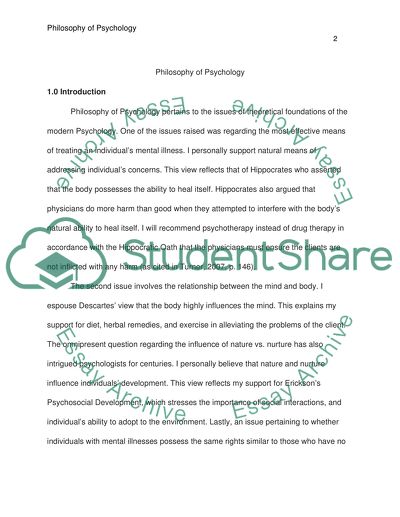Cite this document
(“Philosophy of Psychology Essay Example | Topics and Well Written Essays - 2250 words”, n.d.)
Philosophy of Psychology Essay Example | Topics and Well Written Essays - 2250 words. Retrieved from https://studentshare.org/psychology/1442584-this-is-an-essay-about-your-philosophy-of
Philosophy of Psychology Essay Example | Topics and Well Written Essays - 2250 words. Retrieved from https://studentshare.org/psychology/1442584-this-is-an-essay-about-your-philosophy-of
(Philosophy of Psychology Essay Example | Topics and Well Written Essays - 2250 Words)
Philosophy of Psychology Essay Example | Topics and Well Written Essays - 2250 Words. https://studentshare.org/psychology/1442584-this-is-an-essay-about-your-philosophy-of.
Philosophy of Psychology Essay Example | Topics and Well Written Essays - 2250 Words. https://studentshare.org/psychology/1442584-this-is-an-essay-about-your-philosophy-of.
“Philosophy of Psychology Essay Example | Topics and Well Written Essays - 2250 Words”, n.d. https://studentshare.org/psychology/1442584-this-is-an-essay-about-your-philosophy-of.


